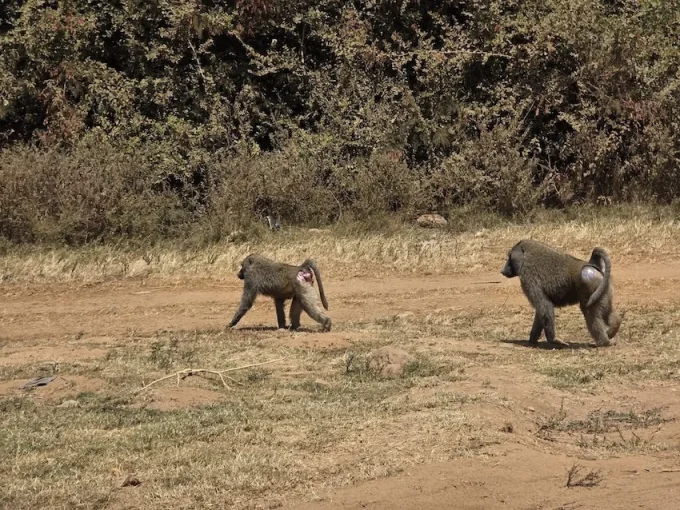BROOKHOUSE, Nairobi
Presidential candidates on Monday night engaged in a live debate aimed at convincing the 14 million voters that they are best suited to succeed President Kibaki after the March 4 General Election. In the first pre-election debate for presidential candidates in Kenya, the eight contestants tackled a wide range of issues, including foreign policy and party politics.
They also promised to fight corruption and tribalism. The thorny issue of the four Kenyans facing trials at the International Criminal Court took centre stage, with Jubilee presidential candidate Uhuru Kenyatta defending himself that he would still be able to run the country if he won the State House seat. The issues discussed were at the core of the party manifestos, which have been launched by the major political parties and coalitions ahead of the elections.
On foreign policy, the candidates agreed that the dispute over Migingo Island had threatened to spoil relations with neighbouring Uganda. They said the issue needs to be handled with care. The debates did not generate much fireworks as expected although there were instances of mild attacks against one another. All the candidates appeared to agree that implementation of the Constitution would be key to addressing tribalism and bad governance.
The Coalition for Reform and Democracy (CORD), Jubilee and Amani are among those that have launched their blueprints, all of which seem to outline common promises to the public if elected. In its manifesto, Cord promises to put in place measures to ensure food security, including transforming the agriculture, livestock and fisheries sectors. Although the alliance does not state specific targets regarding the duration within which it would implement its pledges, or the extent to which it plans to achieve the promises, it mentions that it will “subsidise farm inputs to ensure increased yields”.
The coalition promises to reintroduce free extension services and strengthen co-operatives. The Jubilee coalition promises “something of a revolution” that would put food and clean water on many tables. This will be achieved through the introduction of affordable State loans to subsidise fertiliser and farm equipment. The alliance pledges to establish a national livestock insurance scheme and introduce a livestock evaluation system that would make it easier for pastoralists to access credit. In addition, the coalition promises to put a million acres under modern irrigation.
On security, a Jubilee government will shake up the National Intelligence Service and invest in the specialist anti-terrorism unit with the professional expertise to tackle groups such as al-Shabaab. It also promises to improve pay for police officers. On its part, Cord will be “tough on crime and terrorism and even tougher on their causes”. The coalition also promises to “develop a strategy to strengthen response to terrorism and militia groups”. It pledges to improve border policing by deploying defence personnel, besides creating a directorate of Criminal Investigation as a semi-autonomous agency delinked from the national police command.
The Raila-led coalition promises to tackle poverty by increasing savings and investment rates. It plans to rejuvenate the cooperative movement and expand access to credit through a strong micro-finance sector. It will periodically review the minimum wage to ensure those who earn low pay are cushioned against inflation. The coalition says it will develop policies to reduce poverty levels from the current 46 per cent to less than nine per cent in 2030. But the Jubilee government moves this pledge further by promising to eradicate poverty.
According to Jubilee, Cord and Amani, their governments will roll out social protection programmes to cushion the poor, as well as those with disabilities and others unable to work or living in marginalised areas. The coalitions promise to introduce cash transfers and pension schemes for the elderly. They also appear united in providing cash to more poor and vulnerable people than is the case currently. Another point of convergence for the coalitions and politicians in the race is their promise to establish a national health insurance scheme to cover all Kenyans.
The Jubilee coalition promises to grow GDP by between seven per cent and 10 per cent while Cord caps its growth at a minimum of 10 per cent. Both promise to continue with the infrastructural developments that have been achieved under the Kibaki administration, including expansion of roads. On Sunday, Amani presidential candidate Musalia Mudavadi launched his manifesto, promising to grow the economy and create jobs while ensuring the country remains peaceful and secure. The coalition also promised to fight corruption and address “historical land injustices”. (nation.co.ke)
















































![Pula Co-Founders and Co-CEOs, Rose Goslinga & Thomas Njeru. Pula provides agricultural insurance and digital products to help smallholder farmers manage climate risks, improve farming practices and increase their incomes. [ Photo / Courtesy ]](https://businesstoday.co.ke/wp-content/uploads/2021/01/Pula-Co-Founders-and-Co-CEOs-Thomas-Njeru-Rose-Goslinga.jpg)




























































Leave a comment